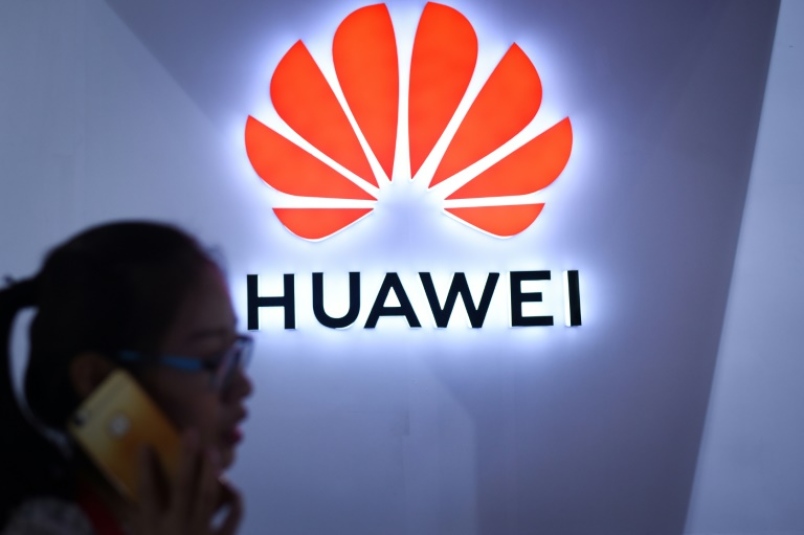Moves by the United States of America to ban Huawei, a leading global telecommunication company, may have suffered a major setback.
This is just as other European nations are reportedly considering using Huawei in building 5G wireless networks.
The Donald Trump administration’s had earlier launched aggressive campaign to prevent countries from using Huawei and other Chinese telecommunications equipment in their next-generation wireless networks.
Trump had argued that Huawei and other Chinese telecom companies are a significant security threat, according to a New York Times report.
But other countries say that the threat can be managed, in addition to Huawei’s denial of the claim.
The Washington Post also reports that the Trump’s move stumbled because some of America’s closest allies rejected it.
European countries divided
Top European countries are currently divided over the ban.
Britain, Germany, India and the United Arab Emirates are among the countries signalling they are unlikely to back the American effort to entirely ban Huawei from building their 5G networks.
Some countries like Britain share the United States’ concerns but argue that the security risks can be managed by closely scrutinizing the company and its software.
With a majority rejecting Trump’s plan, their decisions are a blow to the Trump administration’s efforts to rein in Beijing’s economic and technological ambitions and to stop China from playing a central role in the next iteration of the internet.
American government officials are now looking for other ways to curb Huawei’s global rise without the cooperation of overseas allies, including possibly restricting American companies from supplying Huawei with key components that it needs to build 5G networks across the world.
“It is looking dicey. We are running out of runway,” Mike Rogers, the former Republican congressman who led the House Intelligence Committee and who has long been a fierce critic of Huawei, reportedly said.
Why America’s move failed?
The United States is not ready to admit defeat, but its campaign has suffered from what foreign officials say is a scolding approach and a lack of concrete evidence that Huawei poses a real risk.
It has also been hampered by a perception among European and Asian officials that President Trump may not be fully committed to the fight.
Moves to ban Huawei: Political or economic battle?
There is confusion over what may be the motive of America to ban Chinese companies, prominent among which is Huawei.
Mr. Trump has repeatedly undercut his own Justice Department, which unveiled sweeping criminal indictments against Huawei and its chief financial officer with accusations of fraud, sanctions evasion and obstruction of justice.
Mr. Trump has suggested that the charges could be dropped as part of a trade deal with China. The president previously eased penalties on another Chinese telecom firm accused of violating American sanctions, ZTE, after a personal appeal by President Xi Jinping of China.
Those moves have only deepened concerns that the administration’s fight against Huawei is not really about national security and instead reflects its political and economic ambitions.
European and Asian officials have complained privately that recent American intelligence briefings for allies did not share any sort of classified information that clearly demonstrated how the Chinese government used Huawei to steal information, according to people familiar with the discussions.
European officials have told counterparts that if the United States has evidence the Chinese government has used its companies to do so, they should disclose it.
A senior European telecommunications executive said that no American officials had presented “actual facts” about China’s abuse of Huawei networks.
Huawei Founder reacts
Ren Zhengfei, the founder of Huawei, in his reaction denied the US allegations.
He accused the United States of having political motivations in levelling criminal charges against the company. He said the firm does not spy for China.
Why it is difficult to ban Huawei
Unlike the United States, European wireless networks are much more dependent on Huawei, so banning its equipment would be far more consequential.
Many of the leading carriers, including Vodafone and Deutsche Telekom, use the company’s equipment, and a widespread ban would result in costly changes that executives have warned may delay the debut of 5G in the region.
Garrett Marquis, a spokesman for the National Security Council, said the United States continued to work “with our allies and like-minded partners to mitigate risk in the deployment of 5G and other communications infrastructure.”
“I’m not sure a ban is the solution,” said Caroline Nagtegaal, a member of European Parliament from the Netherlands who helped write a resolution on the cyber-security risks posed by China that avoided calling for a Huawei ban. “We have to be very careful making a step like that.”
Many countries facing American pressure are yet to make any final decisions.

 Join Daily Trust WhatsApp Community For Quick Access To News and Happenings Around You.
Join Daily Trust WhatsApp Community For Quick Access To News and Happenings Around You.


